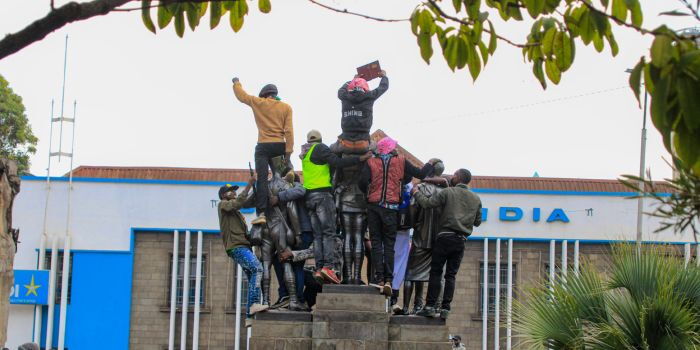A team of researchers from South Korea’s Hankuk University of Foreign Studies is set to arrive in Kenya to conduct a major study aimed at understanding the struggles facing young people in the country.
In a statement issued on Monday, July 14, the State Department for Youth Affairs and Creative Economy said the research will focus on social, economic, psychological, and political issues affecting the youth. The findings will inform policies by both governments to address the growing frustrations among Kenya’s young population.
The research will be led by Prof Jeon Only, Director of the Africa Human Resource Development Centre, and Prof Bae Yuh Jin, Director of the Centre for African Culture and History, both of whom are based at the Institute of African Studies at Hankuk University.
“The Professors noted that the youth demographic is a challenge not only in Kenya but across the world, and the need to understand them is critical to inform appropriate policy interventions for their needs,” read part of the statement.
The department revealed that Hankuk University is among four Korean institutions that applied for government grants to conduct research into youth development in Africa, with Kenya among the key countries of focus.
The announcement comes amid a tense political atmosphere in Kenya, where Gen Z has emerged as a powerful voice demanding reforms and better service delivery.
On July 7, thousands of young people marched in cities and towns across Kenya during the Saba Saba protests, calling out President William Ruto’s administration over economic hardships and unfulfilled promises.
During a public event on July 9, President Ruto strongly condemned the demonstrations, accusing unnamed individuals of trying to destabilise the country by inciting unrest. He warned that the government would no longer remain passive in the face of what he termed unconstitutional actions.
“I have been quiet, and I have tolerated these people who want to change the government using unconstitutional means—but enough is enough,” he said.
“Anyone attacking our police officers, police stations, or installations is effectively declaring war. We will not tolerate it. We cannot run a country ruled by terror or chaos,” he added.
The Korean-led survey is expected to bring new insights into the experiences of Kenyan youth and help guide collaborative responses to their concerns.

